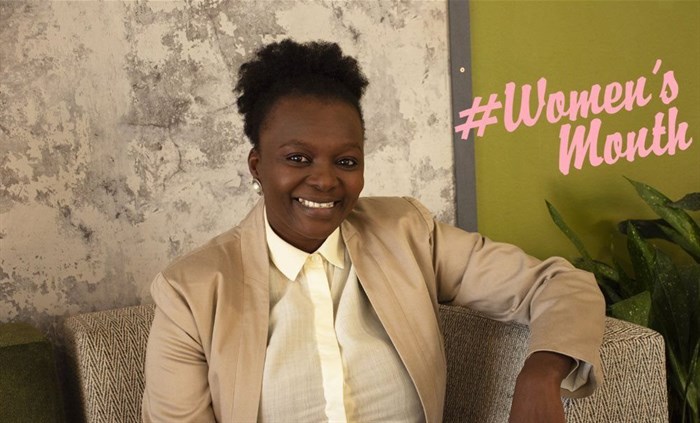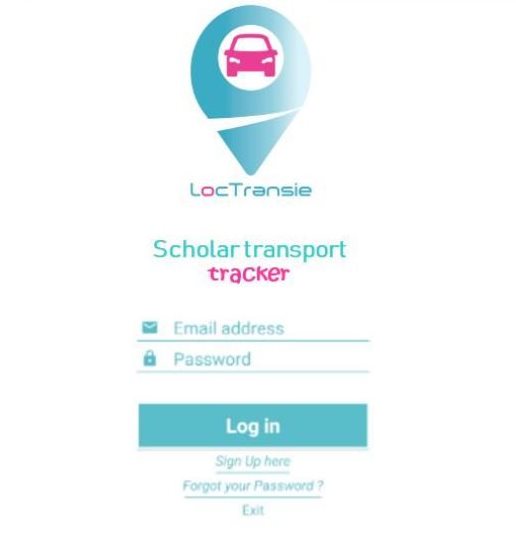Tshidi Morabi creates app to track scholar transport
“Every day, thousands of South African children travel by scholar transport. I struggled to find the right transport company, and then constantly worried when I was not kept in the loop. There had to be a better solution,” says Morabi, who runs an IT firm called Ginini Consulting.

The name LocTransie comes from Loc for “locate” and Transie for “transport” in township slang. Through a user-friendly interface on a smartphone or tablet, the app keeps parents directly informed of delays or route diversions whilst allowing the driver to privately notify parents of emergency events through customised push notifications.
The app reduces the risk of swopping of children from one transport company to an unknown third party without the parent’s knowledge. The platform also provides the parents with scholar transport price comparison within the neighbourhood or district.
For schools, the app allows for a signing-in and signing-out of children. “The launch of the app was delayed by a number of weeks to allow the school component to be included. This was based on extensive discussions with schools who wanted to be involved and ‘tick off’ when students arrive or exit their care,” adds Morabi.
This Women’s Month, we explore what it's like to be in Morabi's shoes.
Could you describe a typical day in your job?
My day starts with a team scrum meeting for 10 minutes to discuss current project statuses, social media feedback and the way forward. The team is always reminded of the company values and vision to ensure that we deliver products that talks to us. This will be followed by implementing the current strategies, meeting stakeholders, potential clients and marketing our products.
What did you want to be when you grew up?
I always wanted to be an entrepreneur, as by the age of 16 I was a salon owner. So, I used to see to peoples’ hair before going to school. I also had a number of ladies, working for the same company, who used to book me on Friday afternoons to do their hair at their workplace.
How did you get into the ICT arena?
I used to admire my late brother who was an IT technician. His first job came with a package of a “pager” (this was before cellphones era) and a new car. By then, I was working for a bank and doing my first year of B.Compt.
What was the best advice anyone ever gave you?
My late brother. I asked for his opinion if it will be wise for me to change the degree I was doing (B.Compt) to B.Com Informatics, which was then just introduced at UNISA. He encouraged me to change it, provided I focus on software development because that’s where the money was and still is. I’m glad I took his advice!
What advice do you have for the future generation of women wanting to get into the tech space?
Women are great implementers and pay attention to detail. The Fourth Industrial Revolution requires women on the forefront to maximise on this 'attention to detail' trait. I believe that women will have a strong role to play in the science, technology and engineering spaces.
Who or what is your biggest motivation?
I have a very supportive partner who believes in my madness. I also live by the principle of saying, “If an idea can cross my mind, it is worth pursuing”. I interpret an idea as a call for action.
Are South African women getting enough of a chance to shine in the tech industry?
Nope, women are expected to be the spectators of men as they excel in the corporate space. On the other hand, women are perceived to be less committed to making it the tech industry due to the unwillingness to have late meetings. This is interpreted as not taking our work seriously and always worried about our kids.
You recently developed a mobile app. Could you tell me more about it?
Yes, LocTransie mobile app was launched early July 2019. The app was developed to address social issues i.e. safety, environmental issues, comfort and peace of mind. Parents, who use scholar transport, are always worried if their kids arrived safely at school and if they were dropped off at home on time in the afternoons.

The LocTransie scholar transport tracker puts parents at ease through the push notification functionality. Parents get notifications from both the scholar driver and the school who participate with the app. The types of notifications include pick-up, drop-off, received and dismissal from school.
As for environmental issues addressed by the app, parents will now be more open to using a scholar transport system that will lead to less traffic at schools and roads, as well as drastically reducing the overall carbon footprint. The app can also be used by sports academies to manage their trips as well for school excursions.
What challenges have you had since starting out?
The release of the app was pushed forward by a month as some schools wanted to be incorporated into the app.
How did you overcome these challenges?
The team had to put in significantly more development hours and change the logic to accommodate the new requests without compromising the quality and design.
What has been the biggest highlight in your career?
The courage to take a leap of faith in 2016 to run Ginini Consulting full-time. Two years later, after I registered the company, I had a calling to quit my job one Friday afternoon around 2pm and I responded. The National Treasury advertised a Request for Information tender looking for Municipal Standard Chart of Accounts (mSCOA) legislative trainers, by then I was employed as an mSCOA specialist and the only way to respond to the tender was to quit current employment to avoid conflict of interest.
There was no way that the National Treasury was not going to consider my application as I told them how I speak mSCOA fluently even though I am an ICT specialist and not an accountant. The legislation had a part of IT that municipalities needed to comply with to meet the full requirements of mSCOA. I leveraged on that and my application was successful. I now enjoy the prestigious status of a handful of mSCOA trainers in South Africa.
A second highlight was developing the idea of LocTransie. The idea successfully turned into a solution to address social needs that can be enjoyed by all parents without economic discrimination, hence the app is free.
Could you list a few, if any, specific challenges females face in this industry?
We are expected to be permanent spectators when it comes to ICT innovations. There is still a massive gender inequality that exists in this industry.
What is your advice in overcoming these challenges?
About Evan-Lee Courie
- #AfricaMonth: A look at music publishing in SA with Eddie Hatitye of Music In Africa Foundation - 24 May 2022
- #Newsmaker: Karena Crerar, new Edelman Africa CEO - 24 May 2022
- Wonder celebrates a year of leading purpose-based brands - 24 May 2022
- kykNET's Kassie-Kuiers reaches 500,000 views in six months - 18 May 2022
- Castle Lager to embrace township economy in new brand positioning - 17 May 2022
View my profile and articles...